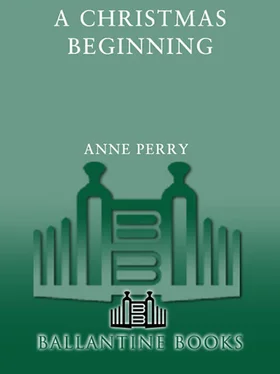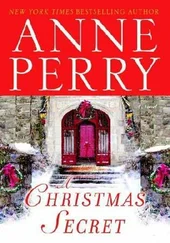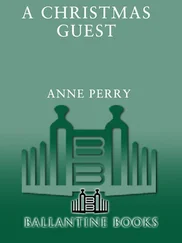Runcorn left the library in Bangor and walked out into the wind with his mind in a whirl. He had visited a different world where all the privileges of class and money did not buy the magic he had assumed. If Faraday had dreams at all, they were not of legendary places and the ghosts of the past. They seemed to be of the good opinions of others, perhaps domestic certainty and investment in the next generation of all that he had been bequeathed by his fore-bears.
As Runcorn walked down to the railway station he felt a sad, strange closeness to his subject. Faraday was in his early forties, and yet he wanted only safety, peace, and things to remain as they were.
Runcorn took the train to Caernarfon and continued his inquiries. He knew from long experience how to be discreet, to ask one thing while appearing to ask another. All he learned about Faraday confirmed the opinion that he was a decent man, but pedestrian, a man of likes and dislikes rather than of passions.
Runcorn remembered with a jolt that this was exactly how Monk had described him: half-hearted, lacking the fire or the courage to grasp for more than he could safely reach, a man who never dared the boundaries or stepped into the unknown as his bridges crumbled behind him. And Monk had despised him for it.
Did he now despise Faraday? Oddly, he did not. He pitied him and felt as if he were looking into a distorted mirror. There was something of himself in the man he saw, a man imprisoned in the expectations of others, too afraid of being disliked to follow his own vision, not hungry enough.
Did it take the face of one woman to stir a man deeply enough to abandon comfort and follow impossible dreams into the cold infinity? Then why was Faraday half-heartedly in love with Melisande, not absurdly and hopelessly as Runcorn was?

The following day he stayed in Beaumaris and asked more questions, seemingly idling his time with local gossip and trivial pieces of information about the past.
To aid in this, he pretended to have come originally to Beaumaris to look at property, inventing a brother who had done well in trade in order to seem wealthy enough to do so.
He was shown a house in the neighborhood of Faraday’s handsome home, which added little to his knowledge, but he learned more of Newbridge, since his house was within view across a stretch of sloping valley.
“Can’t see it so well in the summer time,” the estate agent, a Mr. Jenkins, pointed out.
“Yes. I see what you mean,” Runcorn agreed. “Looks like quite a decent place. Might that be for sale, Mr. Jenkins?”
“Oh no, sir. That belongs to Mr. Newbridge. Been in his family for years.”
“Big family, has he?” Runcorn asked innocently. “Good place for children, I imagine.”
“No, not married yet,” Jenkins replied.
“Betrothed, then?”
“Not as I know.” Jenkins was keen for a sale. “Courting the vicar’s sister, the poor young lady that was killed.”
Runcorn looked skeptical. “Do you think Mr. Newbridge might sell, if the offer were good enough?”
“No sir, I don’t. Money isn’t everything.”
“Looks like a lot of land for one man to handle, and in none too good repair.” Runcorn squinted across the valley, the wind in his face. “Cause resentment, will it, if an outsider buys old land?”
“Yes sir, it could,” Jenkins said candidly. “Newbridges’ve been here since the Civil War. Big thing to keep up, a position like this, being the last in the male line of the family an’ all, but he’ll soon find the right wife, and then there’ll be sons to carry on.”
Runcorn was struck with a sudden horror at the weight of such responsibility, the need to marry, the burden of expectation. Too many people cared what he did, were watching and needing him to produce sons and fill the demands of the future.
Was some of that why he responded badly to Barclay, and why he had taken Olivia’s rejection with anger as well as disappointment? Had she said something about him that might make it even harder for him to find a wife who was willing and able to take up this enormous responsibility? Newbridge had no title, no hereditary office, not even great wealth—just a family name and land he was tied to by history. Was he always trying to keep up with other men he felt had more to give, more charm, more heritage, more hope of office in the future?
It would make him an easy mark for Barclay’s cruelty.
“I think I’ll wait until I’ve been in touch with my brother, thank you,” Runcorn said to Jenkins. “I’ll let you know.”

Faraday sent for Runcorn that evening. He looked tired and disappointed, and even though he had demanded Runcorn’s presence, he paced the carpet in front of the fire and seemed reluctant to broach the subject.
They spoke of trivialities. Outside the rain lashed at the windows and the wind was rising steadily, roaring in off the great sweep of the Celtic Sea.
Runcorn grew impatient. “If you’ve learned something, sir, and I can be of help, perhaps you’d tell me what it is.”
Faraday winced at Runcorn’s lack of polish, and instantly Runcorn felt gauche. He had a hideous vision of doing something appalling that he did not even understand until too late, and Melisande being ashamed of him. Except that that was absurd. She might be disgusted. But to be ashamed one had to care, to feel some kind of kinship with the one at fault.
Faraday was still pacing back and forth, lost in his own inabilities.
“You suggested that Miss Costain might have discovered something about her own family, a secret that was shameful or embarrassing,” he began.
Runcorn was unhappy with the thought, but its ugliness did not invalidate it. He was afraid that it could be true, and Naomi’s strong, weary face filled his mind. “I thought of it as unlikely but not impossible,” he conceded.
Faraday’s voice was heavy. “I’m grateful for your professional skill, and glad I don’t have to share the kind of experience that has given it to you.”
In spite of the fire, Runcorn felt colder.
“You recognized a crime committed with intense hatred,” Faraday continued. “I used to assume all murders were, but you exposed the difference for me to see. I should be obliged to you for that also, but I’m not sure that I am.”
“Do you know something further?” Runcorn demanded, his voice betraying his emotion. “You didn’t send for me in this weather to thank me for teaching you a part of your job you’ll almost certainly never need again.”
A slow stain of color spread up Faraday’s cheeks. “Yes I do, but I have more yet to learn. Mrs. Costain is concealing something of which she is deeply ashamed, or if not ashamed, then at least terrified that it might become known. Costain’s sister was slaughtered like an animal. This we all know.” Faraday shifted his eyes. “And now it looks as if his wife might be an adulteress and have conceived to another man the child she never bore him.” His voice choked with emotion, and for a moment he was unable to speak. His strong hands clenched at his sides until the knuckles shone white, and he could not keep them still.
Runcorn felt the wave of misery engulf him also. Had it been Olivia’s own need for freedom which had driven her to confront Naomi, or the defense of her brother? Murder is never without pain, but this seemed even more steeped in it than most.
Faraday was staring at him still.
“What is it?” Runcorn demanded.
Faraday’s voice was little more than a whisper, all but choking off at the end. “The baby is dead. It looks as if she killed him.”
Читать дальше











